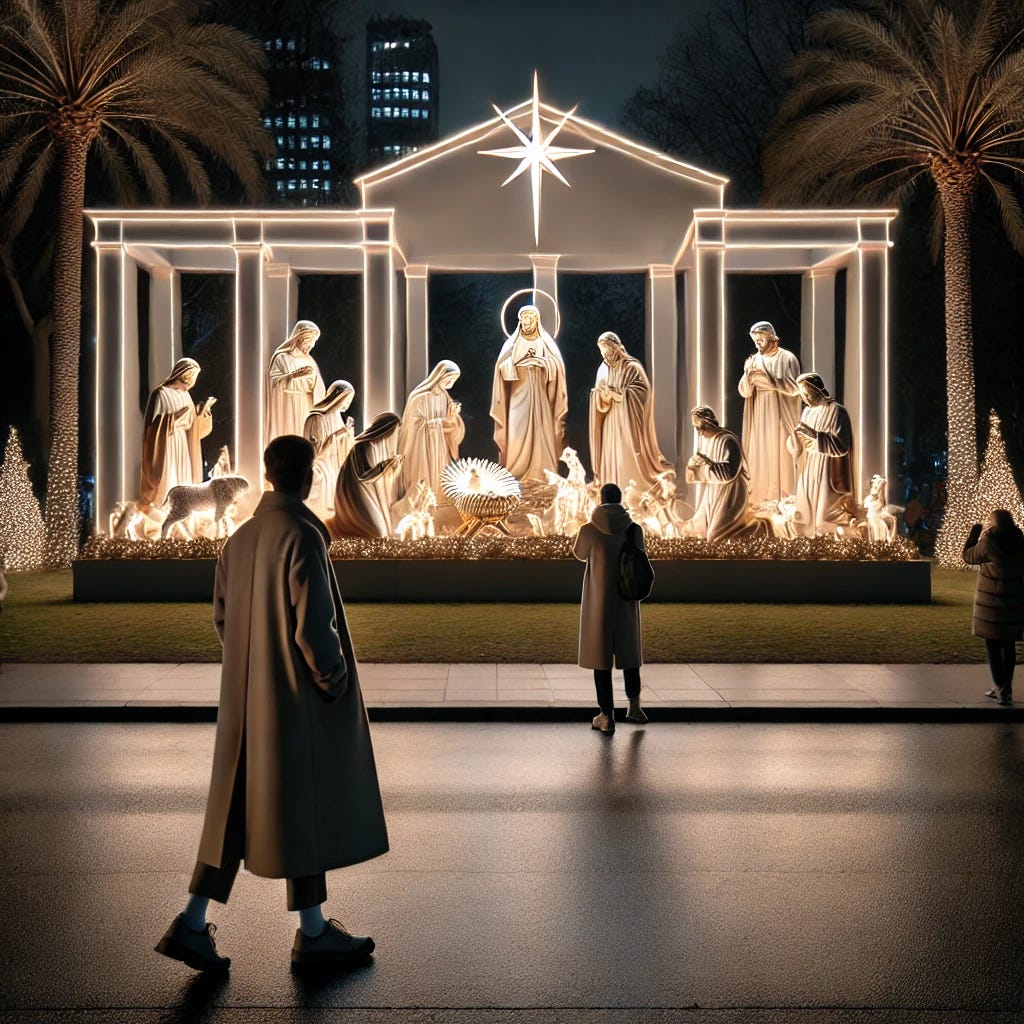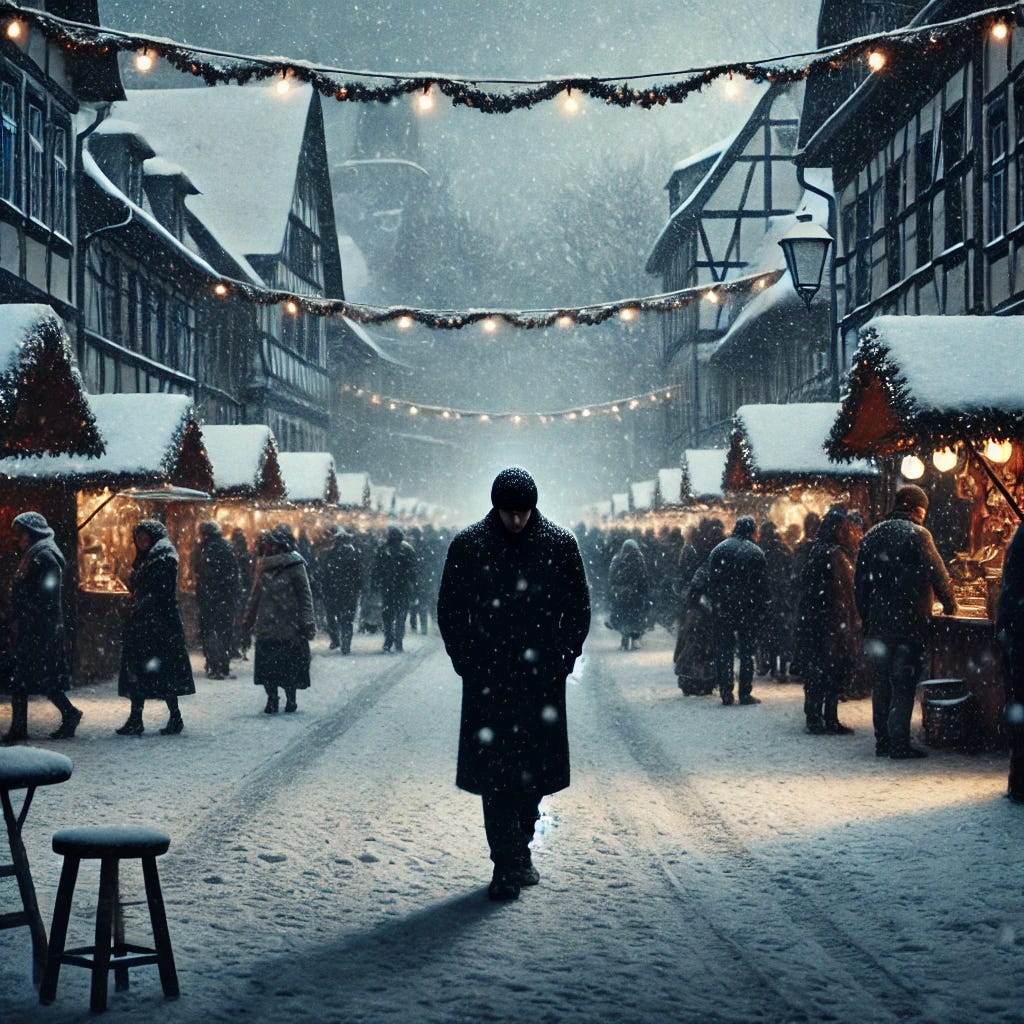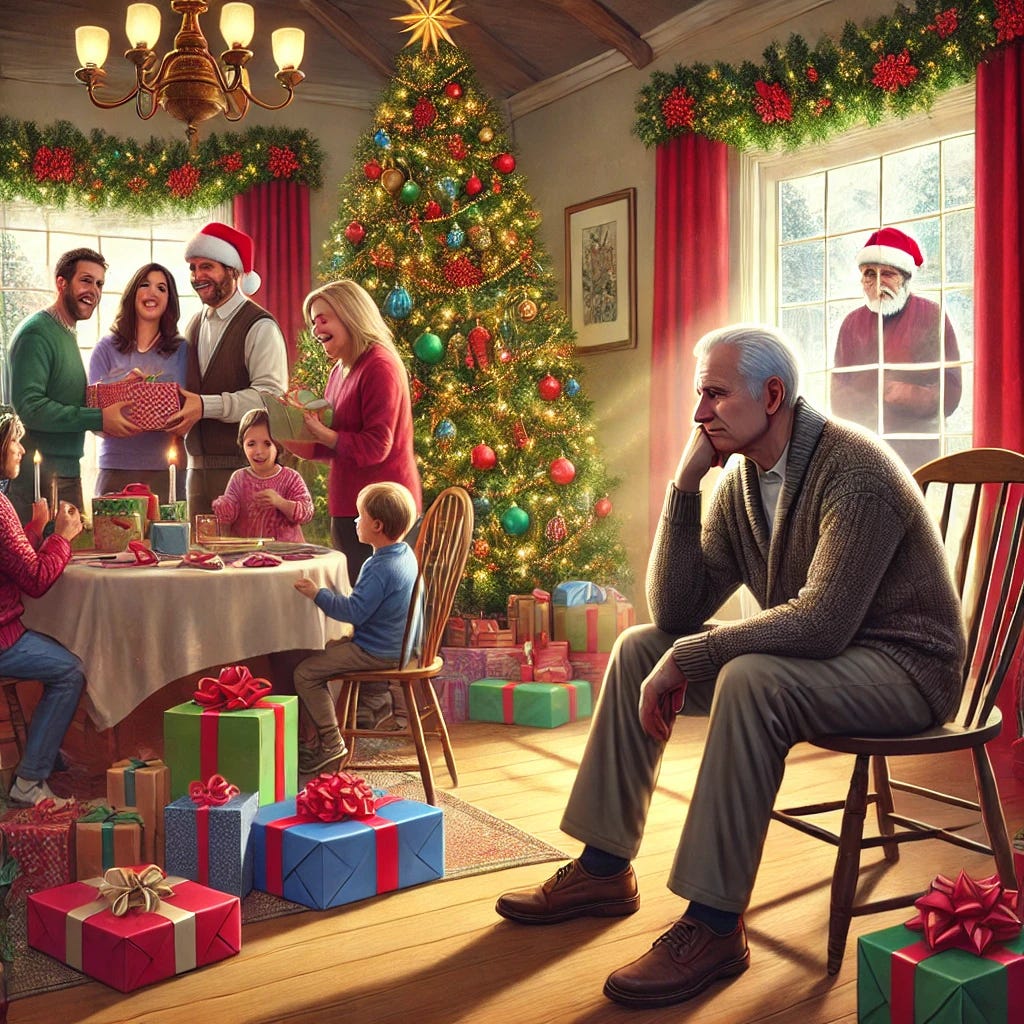Last Monday, when I walked into the office, I was greeted with an unexpected burst of warmth and cheer. My desk was covered in small tokens of appreciation—boxes of chocolates, heartfelt Christmas cards, and tiny ornaments that my staff had left for me. Their thoughtfulness was infectious, and I couldn’t help but smile at their generosity and the obvious joy they felt in sharing these small acts of kindness.
Later, as I settled into the day’s work, the quiet hum of the administrative center was suddenly replaced by the sound of a choir—soft at first, then growing louder as they approached. A group of carolers, dressed in bright scarves and festive sweaters, had been brought in as a surprise to serenade us with beautifully harmonized Christmas songs. Their voices, clear and powerful, filled the halls with an energy that seemed to pause time, drawing people out of their offices to listen. For a moment, I stood still, watching my colleagues—some quietly enjoying the music, others humming along or smiling with wide-eyed nostalgia.
That same spirit carried into the afternoon when we gathered together for a small reception. The same carolers returned, and we stood with cups of hot chocolate in our hands, watching them perform again. There was laughter, conversation, and a palpable sense of togetherness—colleagues connecting not through meetings or deadlines, but through something more human. I appreciated the moment for what it was: an opportunity for shared joy during a season that, for many, holds deep meaning.
But as I drove home that evening, I found myself reflecting on what the day represented—how traditions like these, steeped in cultural and religious significance, can bring people together but also carry a kind of quiet assumption of universality. For those who do not share in these beliefs, the warmth of the season can sometimes feel like a fire from which they are excluded, leaving them quietly out of step with the celebrations around them. It’s not a lack of appreciation for community, kindness, or the human spirit—rather, it’s the challenge of finding one’s place in a world where certain traditions so thoroughly dominate the cultural landscape.
The Christmas season in America and Europe is a time steeped in cultural and religious significance, celebrated as a cherished holiday by many across both continents. For devout Christians, the holiday marks the birth of Jesus Christ, the cornerstone figure of their faith. Yet, in contemporary society, Christmas has also evolved into a cultural event intertwined with commercialism, social gatherings, and familial traditions. Despite this, the overwhelming Christian undertone of the season leaves little room for those who identify as atheists, anti-theists, or individuals with non-religious worldviews. The near-ubiquitous nature of Christmas, particularly in Western nations, creates an environment of exclusion and alienation for those who do not share in its religious or cultural foundations. To foster a truly inclusive and progressive society, it is imperative to acknowledge and address this imbalance, challenging dominant norms that marginalize those who dissent from or oppose religious traditions.
The Dominance of Christmas Culture
In both America and Europe, the Christmas season is not merely a religious holiday but a cultural juggernaut. Cities are adorned with nativity scenes, lights, and Christmas trees; carols echo through public spaces; and government holidays are scheduled in alignment with Christmas. While this festive atmosphere may seem secular in some aspects—emphasizing gift-giving, food, and celebration—it remains steeped in Christian tradition and symbolism. Even phrases such as “Merry Christmas” carry implicit assumptions of religious universality. For atheists and anti-theists, such displays are more than benign cultural practices; they are reminders of societal norms that privilege religious perspectives and diminish non-religious ones.
In the United States, where secularism is constitutionally enshrined, the presence of religion in public spaces during Christmas blurs the line between church and state. Schoolchildren sing carols that extol Christian theology, municipal offices host nativity displays, and workplaces conduct Christmas-centric celebrations. Though many might view these traditions as harmless or culturally necessary, they impose a societal expectation of conformity to Christian narratives. For atheists and anti-theists—particularly those who actively critique religion—this cultural pressure to participate in Christmas celebrations is not only alienating but also reinforces a sense of marginalization within their communities.
Similarly, in Europe, where many countries boast official or historical state churches, Christmas remains a deeply ingrained tradition. Even in largely secular countries like Sweden or the Czech Republic, Christmas festivities permeate public life, leaving little space for alternative perspectives. Anti-theists, who view religion as an impediment to societal progress, may feel particularly conflicted when surrounded by celebrations rooted in religious doctrine. The expectation to conform to such traditions becomes a source of discomfort, often driving a wedge between non-believers and their religiously observant friends, family, or colleagues.
The Marginalization of Atheist and Anti-Theist Voices
Atheists and anti-theists are often labeled as "grinches" or "Scrooges" when they express discomfort with Christmas celebrations or critique its dominance. These labels are rooted in cultural stereotypes that portray those who dissent from religious traditions as joyless, bitter, or even hostile to societal harmony. Such characterizations are both unfair and damaging. Atheists and anti-theists are not opposed to celebration, joy, or communal gathering; rather, their discomfort stems from the imposition of religious traditions in a society that purports to value pluralism and diversity.
This marginalization is compounded by societal expectations during the holiday season. Refusing to participate in Christmas festivities is often perceived as anti-social or disrespectful, creating a moralized framework where non-participation is equated with rejection of shared cultural values. For anti-theists, whose worldview actively challenges the dominance of religious norms, Christmas becomes a particularly isolating time. The season forces them to navigate a delicate balance: maintaining their principles while avoiding conflict in social or professional settings.
Why Change is Necessary
The pervasive dominance of Christmas as both a religious and cultural holiday highlights an underlying societal issue: the privileging of religious perspectives over secular ones. A truly inclusive society must create space for individuals of all beliefs—religious or non-religious—to coexist without coercion or marginalization. The current cultural landscape during the Christmas season undermines this goal by promoting conformity to religious traditions and sidelining those who dissent.
Change is necessary for two key reasons. First, inclusion and pluralism are foundational principles of modern democratic societies. If we are to create environments that respect diversity, we must acknowledge the perspectives of atheists, anti-theists, and secular individuals during the holiday season. This means moving beyond assumptions of universal participation in Christmas traditions and recognizing that the season does not hold the same meaning for everyone.
Second, societal advancement requires critical engagement with tradition. Anti-theists, in particular, challenge the dominance of religious narratives, arguing that such dominance often impedes progress in areas such as science, education, and social equality. By marginalizing these voices during Christmas, society misses an opportunity to engage in meaningful dialogue about the role of religion in public life. Creating space for these perspectives fosters a more balanced discourse, encouraging progress and greater mutual understanding.
A Path Forward
To address these issues, concrete steps must be taken to foster inclusion and respect during the Christmas season. First, public institutions should adopt more inclusive practices, ensuring that secular or non-religious individuals do not feel pressured to participate in Christmas-themed activities. For example, schools and workplaces can celebrate the season in a way that emphasizes universal values—such as kindness, generosity, and togetherness—while minimizing religious symbolism. Additionally, the inclusion of other holidays, such as the winter solstice or Hanukkah, can help create a more diverse and representative festive season.
Second, there must be a broader societal effort to destigmatize dissent from religious traditions. Atheists and anti-theists should not be vilified for expressing discomfort with Christmas or for critiquing its dominance. Instead, their perspectives should be recognized as valid contributions to the ongoing dialogue about cultural norms and societal progress. By fostering an environment of mutual respect, we can create a society where individuals are free to celebrate—or abstain—from traditions without fear of judgment or exclusion.
Finally, secular and non-religious celebrations should be given greater visibility. Events such as HumanLight, a holiday celebrated by secular humanists, provide opportunities for non-believers to gather in community and celebrate shared values. Promoting awareness of such alternatives can help balance the cultural dominance of Christmas and provide non-religious individuals with meaningful ways to mark the season.
The Christmas season, while a time of joy and celebration for many, presents significant challenges for atheists and anti-theists in across the world. The dominance of Christmas as both a religious and cultural tradition creates an environment of exclusion that marginalizes those who do not share in its significance. If we are to build a truly inclusive and progressive society, we must challenge the assumption of universal participation in Christmas and create space for diverse perspectives. By fostering mutual respect, promoting inclusive practices, and encouraging dialogue, we can ensure that the holiday season becomes a time of genuine community and belonging for all.











